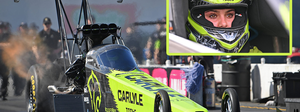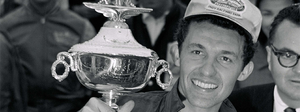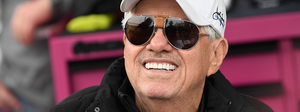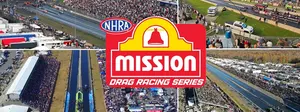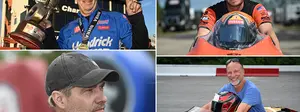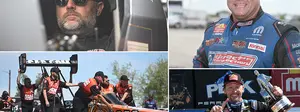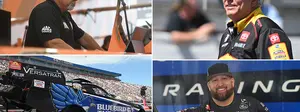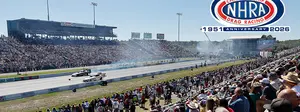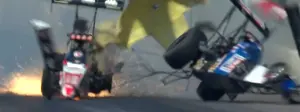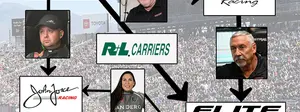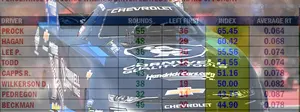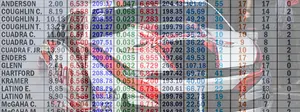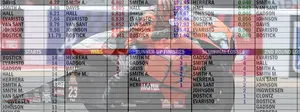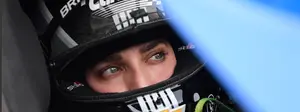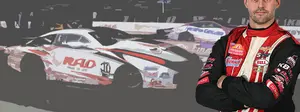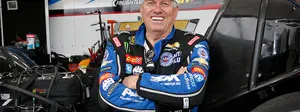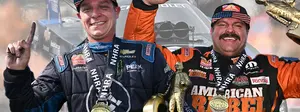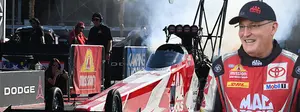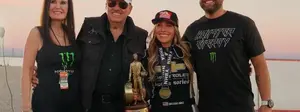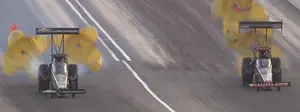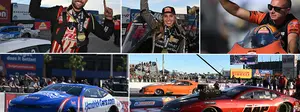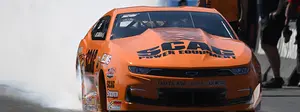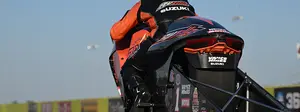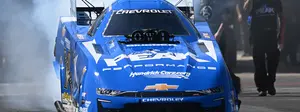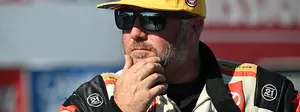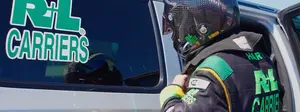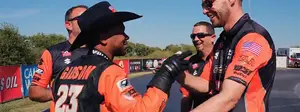For Matt Hagan, strength is more than just about flexing muscles in title bid
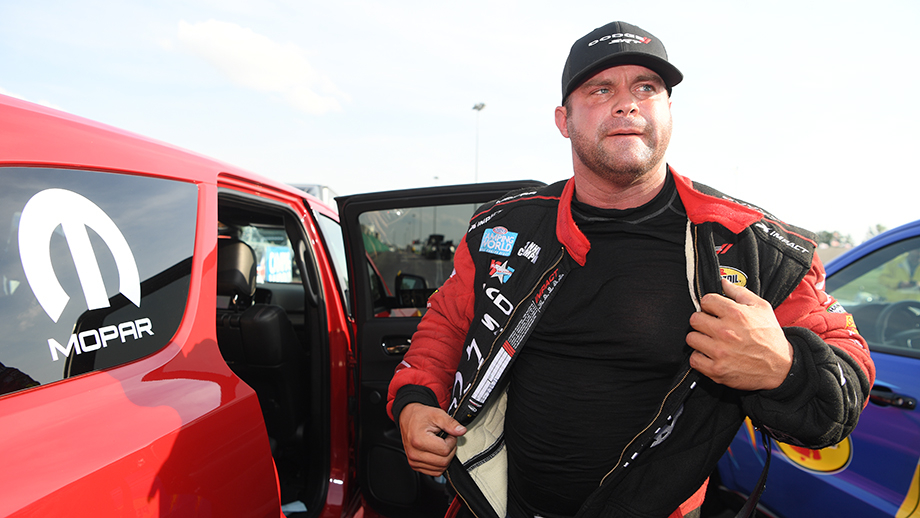
Funny Car driver Matt Hagan is known for physical strength. In fact, the three-time NHRA Camping World Drag Racing Series champion is often referred to by fans and media as "Hulk" Hagan. What he hasn't gotten a lot of credit for, though, is that he's as mentally tough as he is physically strong, and that characteristic is something he's honed as part of the skillset needed to win races and championships in the increasingly competitive Funny Car category.
"I've learned a lot, every season. You take my second year racing one of these cars [2010], everybody talks about me pouting on the top end," said Hagan. That season, he went to the final round at three of the last four races to wrench the No. 1 spot from John Force's hands heading into the Auto Club NHRA Finals. There, he handed the championship back to Force with what was clearly a strikingly painful first-round loss.
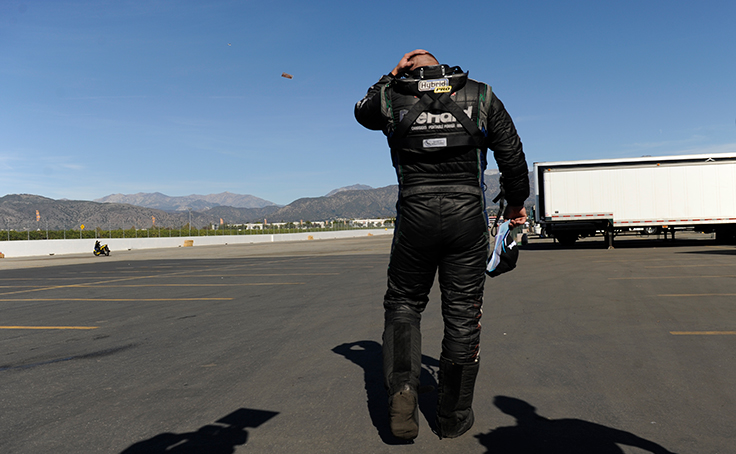
"Looking back, [that season] changed me as a person and a driver. I wasn't mentally ready to win a championship. But I've grown as a driver and a team member," he continued. "You compile and you compress and you pull from those experiences. You can see that in my career, I've cut decent lights in the first round or two, but those lights come on quicker in the semi's and finals because it's about rising to the occasion. Mentally, as a driver, I've learned to bring that out of me when it's needed for my team. It's not something you can do automatically; you have to learn to deal with the pressure and be excited about it instead of scared of it."
Last season, Hagan had to lean hard into his mental strength. Eager to defend the 2020 title, the Christiansburg, Va.-based driver was a warrior through some challenging early races – including a first-round loss at the season opener – but a win in Brainerd moved him into the points lead just as the Countdown to the Championship was coming into view. He only had to hold on through one more race, the grandaddy of them all, the NHRA U.S. Nationals at Indianapolis Raceway Park.
As has become its signature characteristic, COVID-19 came along and changed everything. Hagan fell ill just before Indy and was unable to compete at the U.S. Nationals and the following event that took place at Maple Grove Raceway in Reading.
"That was one of the toughest things I've ever been through," admitted Hagan. "I thought, 'I'm a big tough farm boy, and I've had my butt kicked before.' But I just couldn't shake it off. Lying there in the hospital puts a lot into perspective. It rattles your cage a little bit when you think you have a real opportunity of dying."
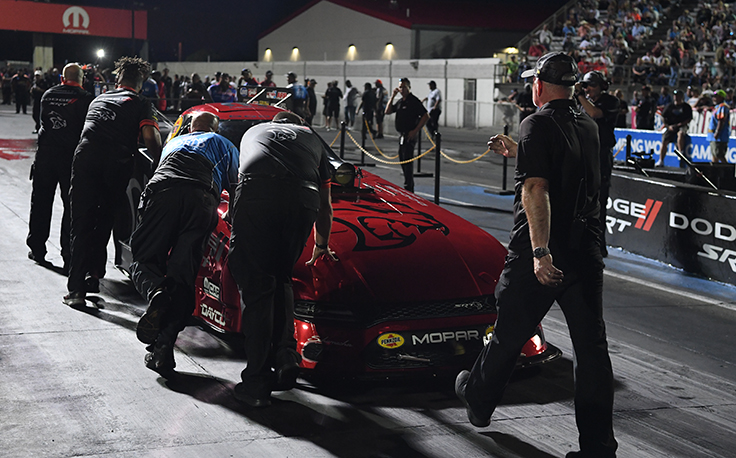
Tommy Johnson Jr. subbed for him to try to claim points for the ailing driver – an allowable effort written into the rules due to COVID-19 – but persistent rain in Indy limited qualifying to just one session, and in that lone session, Johnson was shut off after the burnout and did not get to make a run, thereby logging a DNQ. Hagan fell to No. 5 in the points entering the first race of the Countdown, but he was back up to No. 2 when Johnson won Reading driving the defending champ's Mopar Dodge Charger.
Healthy and hungry, Hagan was back in the car for the next event and claimed a round-win, then earned a Wally and a runner-up before going back-to-back with first-round losses in Bristol and Las Vegas. The dramatic turn of events left him stuck in the No. 2 spot for the remainder of the year as he watched then-Don Schumacher Racing (DSR) teammate Ron Capps take possession of the championship.
"It was like someone cutting your jugular; you can put your hand over it, but it's hard to survive. It was tough," said Hagan. "We were really strong, Dickie Venables did a really good job all season long of putting a great racecar underneath me, but those few things that went wrong summed up our year. I wouldn't say we gave it to Capps, but we definitely let Capps take it.
"I'm really happy for him, though. Capps is very gracious, and he's someone I look up to. If someone else was going to win it, I wanted it to be him."
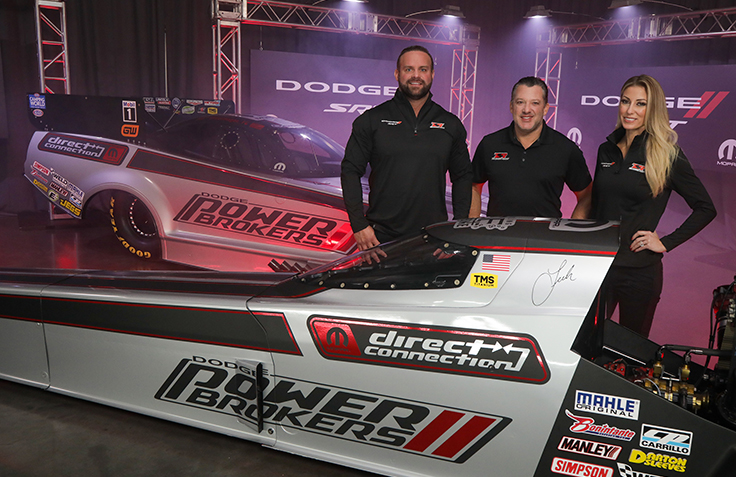
This season, Hagan will be chasing the championship with a different team as he embarks on a fresh journey with TSR Nitro, the newly formed drag racing branch of Tony Stewart Racing. The team will include Hagan and Top Fuel driver Leah Pruett with Dodge//SRT and Mopar as primary sponsors.
"Being able to keep my guys together is really what helped me make the decision," he said. "When your crew is happy and clicking, they're excited to be at work, and that charisma and motivation carries into the season, to race day, to everything. I've learned to become one of the biggest cheerleaders in the sport as far as my team, because I'm nothing without them.
"I think our biggest challenge this year will be figuring out Tony a little bit and seeing how he reacts to the different situations. He's shown nothing but positivity and encouragement, but it's like having a new coach on your football team. He's the new boss you'll have to impress, and we don't really know what type of leader he is yet."
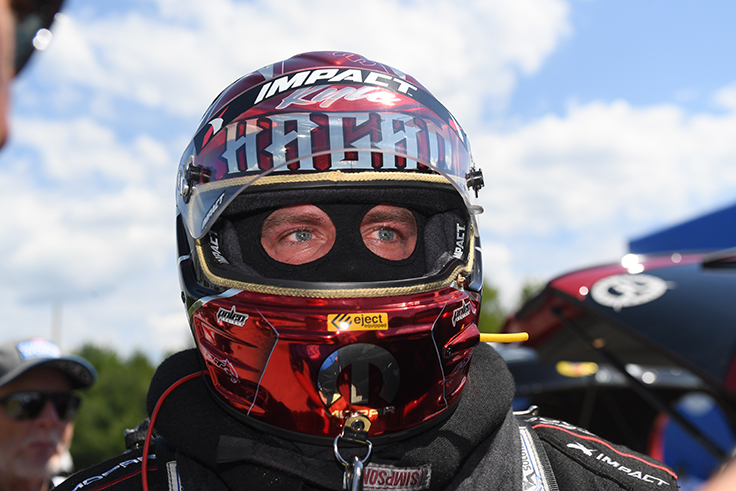
Hagan will turn 40 this November, and he's driven everything from drag boats and monster trucks to Pro Mod and Funny Cars in a life dedicated to power and speed. In NHRA competition, the cattle and hemp farmer from rural Virginia has earned 39 wins in the 293 nitro races he's entered thus far, and he looks to this new chapter to be as productive as the last – perhaps even more so with the tenacity he's fostered over the last decade and something of a fresh perspective.
"My dad built me an office last year and asked me how long I was going to keep doing this, but I just love it," said Hagan. "It used to just be about driving the race car and going fast, but now it's about, who do I get to beat? That's what drives me. It isn't about the adrenaline and going 330 mph anymore; now it's about watching timeslips and being better than the person beside me. I'm focusing on what's in front of me and around me, and I'm taking that and using it on the racetrack to be a better driver."



